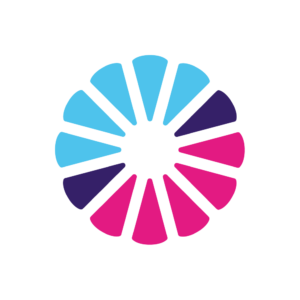What exactly is a Debt Management Plan?
A debt management plan, usually just referred to as a “DMP,” is a partnership between you and CCCS of Buffalo to systematically pay down your outstanding debt through monthly payments. You would make one monthly payment directly to us, and we then disburse those funds out to your creditors each month. On a plan, you can include any unsecured debt – so credit cards, personal loans, medical bills, or collection accounts.
Why is a DMP something I’d want to participate in?
Well, there are several benefits to doing so! First, we work with your creditors to get you a lower interest rate. Depending on the creditor and the type of debt, interest rates are typically reduced to around 0-10%. We work with the creditors to make an arrangement for them to accept a lower monthly minimum payment from you, which ultimately puts more money back into your pockets on a monthly basis. Once enrolled into a DMP, creditors typically stop charging late and over limit fees, and you will no longer receive collection calls.
Many would agree that the convenience of having only one monthly payment, rather than having to pay several creditors individually, is one of the biggest benefits of doing a DMP – but the ultimate benefit is the fact that you will be DEBT FREE in 5 years or less!
How would a DMP affect my credit score?
The good news is, there is no direct impact to your credit score by enrolling into a DMP. You may see an initial drop in your credit score due to the fact that there are some changes to how your credit is reported. First, any account going on the plan will be closed out by your creditors. If you had available credit on those accounts, it wouldn’t be available to you anymore – you would just be paying down the balance. Additionally, if you include longstanding accounts on the plan, since those would be closed, it could shorten the average age of your credit history.
Another bit of good news is that we do typically see credit scores increase within about 6-12 months of being on the plan, provided that you’re making on time payments to us and also to any other credit obligations you may have outside of the plan (like your mortgage, student loans, or car payment).
How does this get reported?
Some creditors may report that you are enrolled in a DMP and repaying your debts through a third party. This could be viewed as either a negative or a positive, depending how creditors choose to interpret this information. The idea of having a notation on your credit history may initially raise a red flag for you; however, this notation may suggest to lenders that you are actively working to pay all of your debts, in full, to the best of your ability.
DMPs are designed to be paid off with regular monthly payments over the course of approximately 3 to 5 years (60 months, or 5 years, being the maximum allowed by the National Foundation for Credit Counseling). These timely payments, over the course of your DMP, will have a very positive impact on your payment history. The lower your credit score initially, the more your credit will ultimately improve by enrolling on a plan.
How much would my monthly payment be?
This depends on who your creditors are, what your balances are, what they would accept on a plan from us. Your payment would include our monthly service fee (which is nominal due to the fact that we are a nonprofit organization). Most people find that their monthly payment on a DMP is significantly lower than what it would be had they continued to make minimum payments on their own.
How do I know if this is the right solution for me?
The truth is, there are many options for debt repayment out there, and a DMP may not be the right fit for everyone. In order to find out what a plan would look like for you, and receive professional advice on whether or not it would be beneficial to you, we would recommend scheduling a Financial Counseling Session with one of our qualified credit counselors.
How can I get started?
Give us a call at (716) 712-2060 to schedule a Financial Counseling Session!
You and your counselor will review your finances and determine what debt repayment option will make the most sense for you and your situation, and go over the details of what a DMP will look like for you.
Alternatively, you can complete our online application (
click here!) and a counselor will review your situation and put together an assessment that you will be emailed within 3-5 business days. You can then work with your counselor directly to go over your assessment and get enrolled in a DMP. Ultimately we have YOUR best interest in mind and are here to help you!
So contact CCCS of Buffalo, Your Money Mentors, today and take that first step toward financial freedom!

